Lettering with the Speedball B Nib
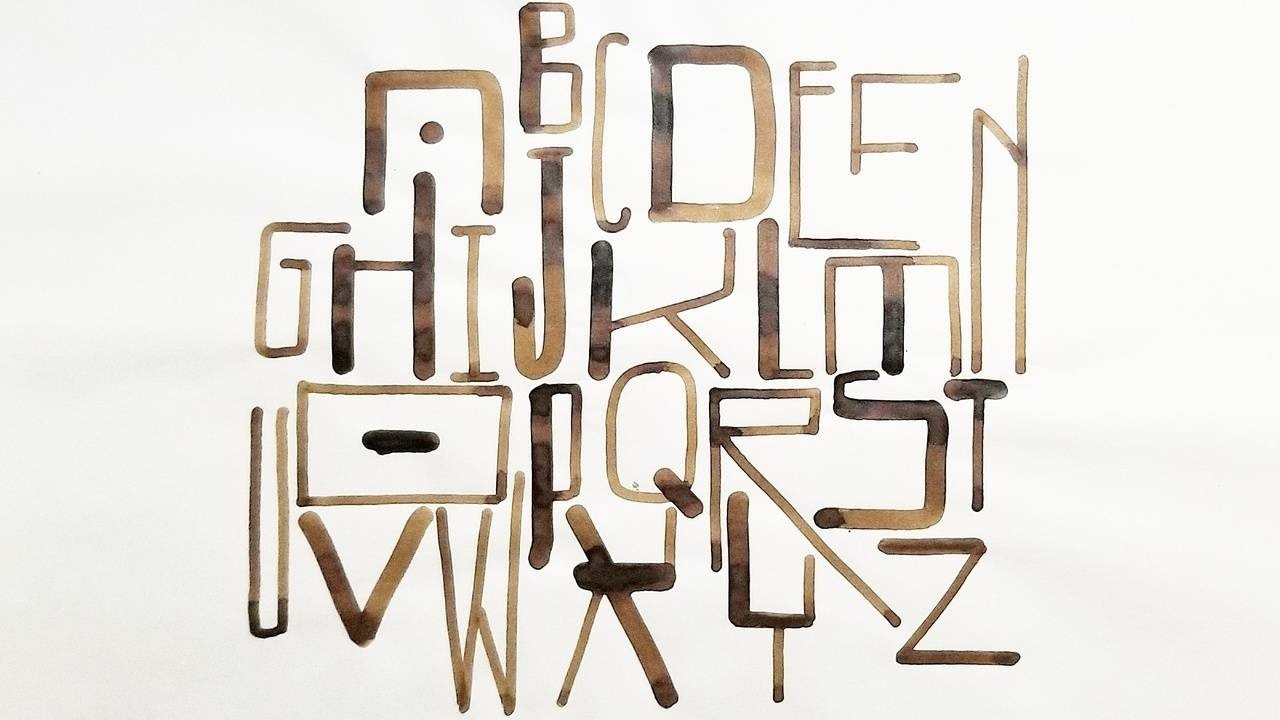
Homework Hashtag: #kcaspeedball
You've been introduced to the square Speedball A nib with Hill House Script, but now it's time to explore the Speedball B nib. Its tip has a round appearance as opposed to a square shape. In this class, you will learn how to make your own variations and make a unique A-Z pattern!
Topics Covered:
- All about the speedball nibs
- Warm-up Exercises
- Variations to the letters
- Making an A-Z pattern
Want to join us for class? It's offered on-demand and available now for all Tier 2 students. Some classes are also available to Tier 1 students. Click here to see the Tier 1 Class Listing.
How to Access Your Members-Only Class:
- Go to www.kallicampacademy.com
- Log in to your account
- Click on Classroom
- Click on Tier 2 -- Class Archive
- Click on Different Calligraphy Scripts
Materials Needed:
- B nib (half size is closer in size to the A-1 we've used before)
- straight pen holder
- ink of your choice
- printed warm-up sheets
- printed grid shee ...
Japanese Stab Binding - 3 Techniques
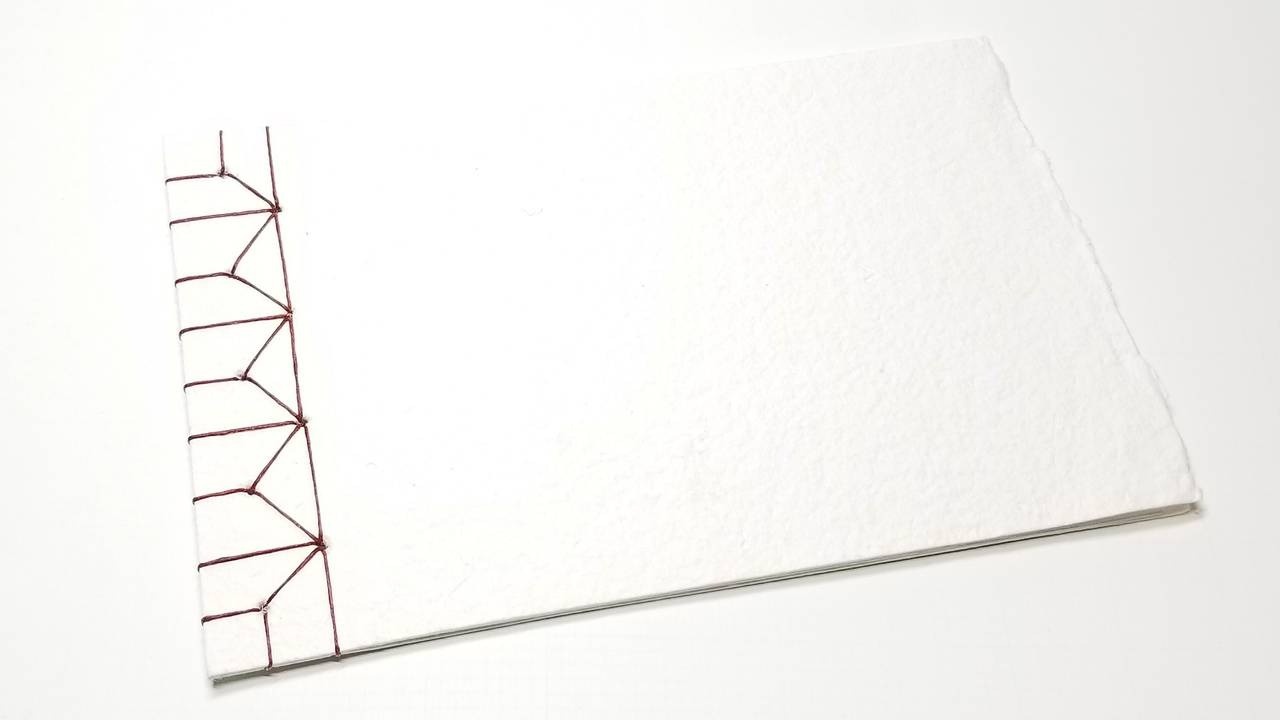
Homework Challenge: #kcajapanesestabbinding
Introduction:
Japanese Stab Binding is exactly what it sounds like. Books are bound together after the binder stabs holes along the left spine and sews thread through the holes to bind the book. It can be the standard 4-Hole Japanese Stab Binding called "Yotsume Toji" that I taught last year or it can be more intricate in design like the Hemp Leaf Binding or "Asa-No-Ha Toji".
I will be showing you how to create a simple Inner Binding to hold the inside pages together as well as the Noble Binding or "Koki Toji" along with the Hemp Leaf Binding.
Topics Covered:
- Create an Inner Binding
- Create templates
- Start with the Noble Binding stitch
- End with Hemp Leaf Binding stitch
Want to join us for class? It's offered on-demand and available now for all Tier 2 students. Some classes are also available to Tier 1 students. Click here to see the Tier 1 Class Listing.
How to Access Your Members-Only Class:
- Go to www.kallicampacademy.co...
Spring and Summer Wedge Brush Florals
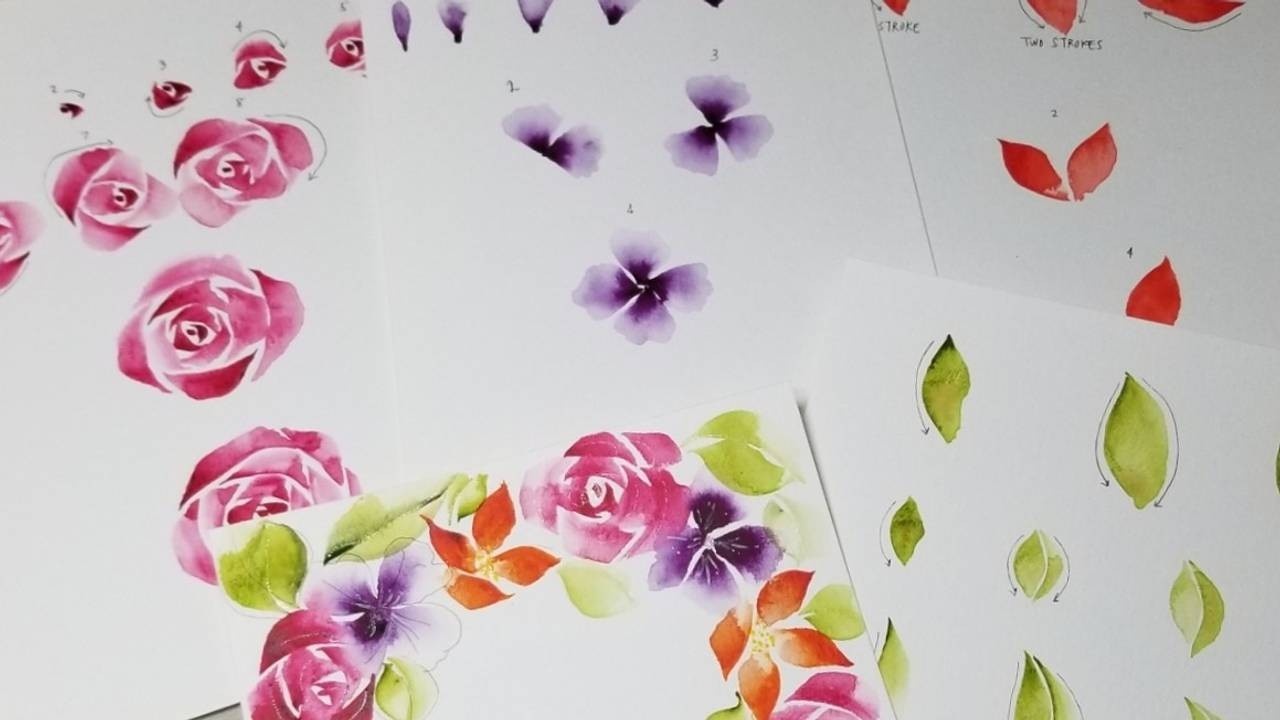
The wedge or triangle brush is a specialty paintbrush where the ferrule and hairs of the brush form a triangle. The tip of the brush comes to a fine point and the body of the brush is full. This unique shape helps the brush hold a lot of water in the body which helps distribute pigment evenly throughout the strokes. Petals and leaves and many other shapes can be created with one stroke. In this course, you will learn to create petals and leaves using a press and release technique as well as press and sweep, press and wiggle, press and pull. You will put these techniques together to create florals, including my signature wedge brush rose.
Topics Covered:
- Wedge Brush petals (press down and move back & forward and to one side)
- Jane's "Signature" rose (press down and pull to one side and lift)
- Wedge Brush petals and leaves (press down and sweep to one side and repeat to the other side)
- Using a non-wedge brush to create these petals and leaves
Want to join us for class? It's of...
Art Nouveau Lettering Style with Speedball A Nib
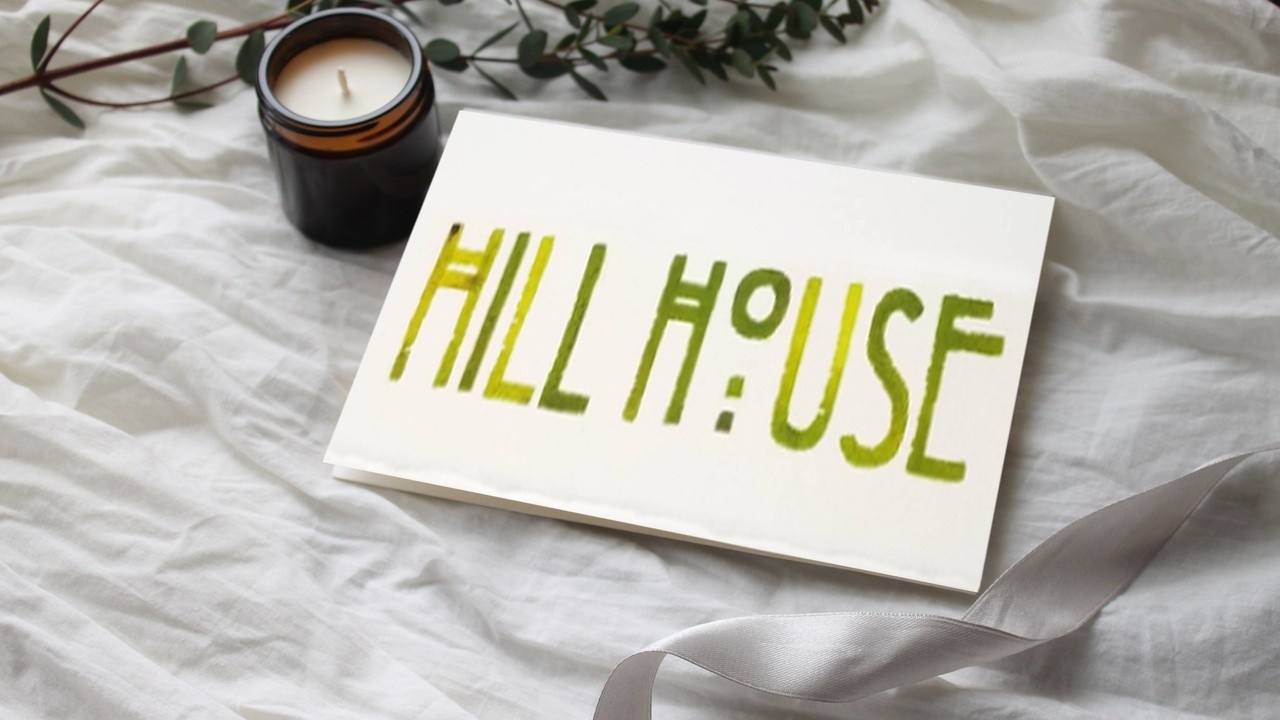
Inspired by both organic and geometric forms, Art Nouveau first appeared in Brussels in the late 1800's and quickly spread through Belgium and France and all throughout Europe. During this time, the Art Nouveau Style can be seen most prominently in furniture, textiles, architecture, interior design, glass art, ceramics, jewelry and graphic design. Art Nouveau lettering styles took on the overall look and design of the trend of very high or very low waistlines, diagonal and triangular shapes, curved organic shapes, and long lines. In this class, we will explore the Hill House Typeface using the Speedball A-1 nib. This typeface is said to be based on the "distinctive handwriting" of Glasgow architect, Charles Rennie Mackintosh. Come join me in getting to know the Speedball "square bent nib" through a series of warm-up exercises and let's have some fun learning this stylish asymmetrical typeface!
Topics Covered:
- Bent nibs
- Charles Rennie Mackintosh
- Hill House
- Warm-up Exercises
- H ...
How to Make a Nib Organizer
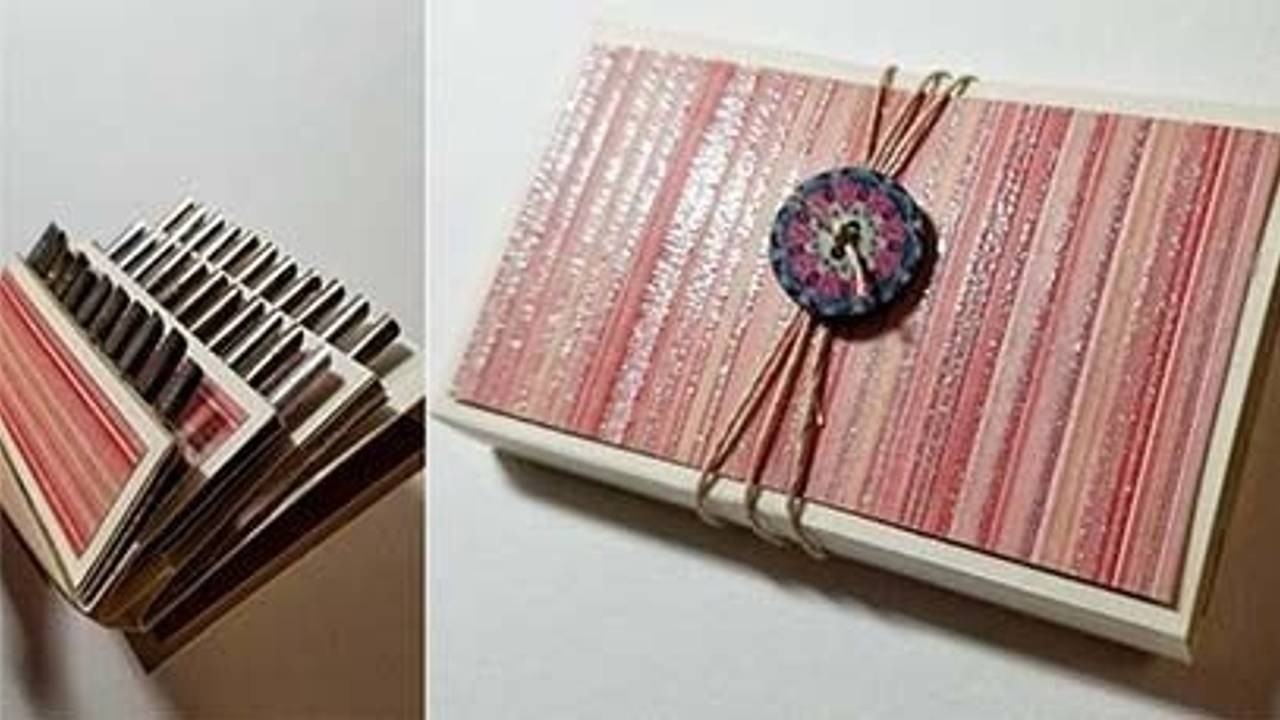
Let's kick off the new year getting organized! How many of you have more than a dozen nibs? How many of you like to share the nibs that you have? Perhaps you can use a nib organizer or a pretty way to gift nibs to your favorite calligraphy friend. I have designed this nifty nib organizer and will take you step by step in showing you how to make one (or more) for yourself or for gifting!
Topics Covered:
- How to create a nib organizer
- How to use the organizer
Want to join us for class? It's offered on-demand and available now for all Tier 2 students. Some classes are also available to Tier 1 students. Click here to see the Tier 1 Class Listing.
How to Access Your Members-Only Class:
- Go to www.kallicampacademy.com
- Log in to your account
- Click on Classroom
- Click on Tier 2 -- Class Archive
- Click on Organization
Materials Needed:
- Printed Supplies List
- Printed cutting and scoring templates
- Cardstock and Designer / Scrapbooking paper / Marbled paper
- Corrug ...
Weaver Writing Style
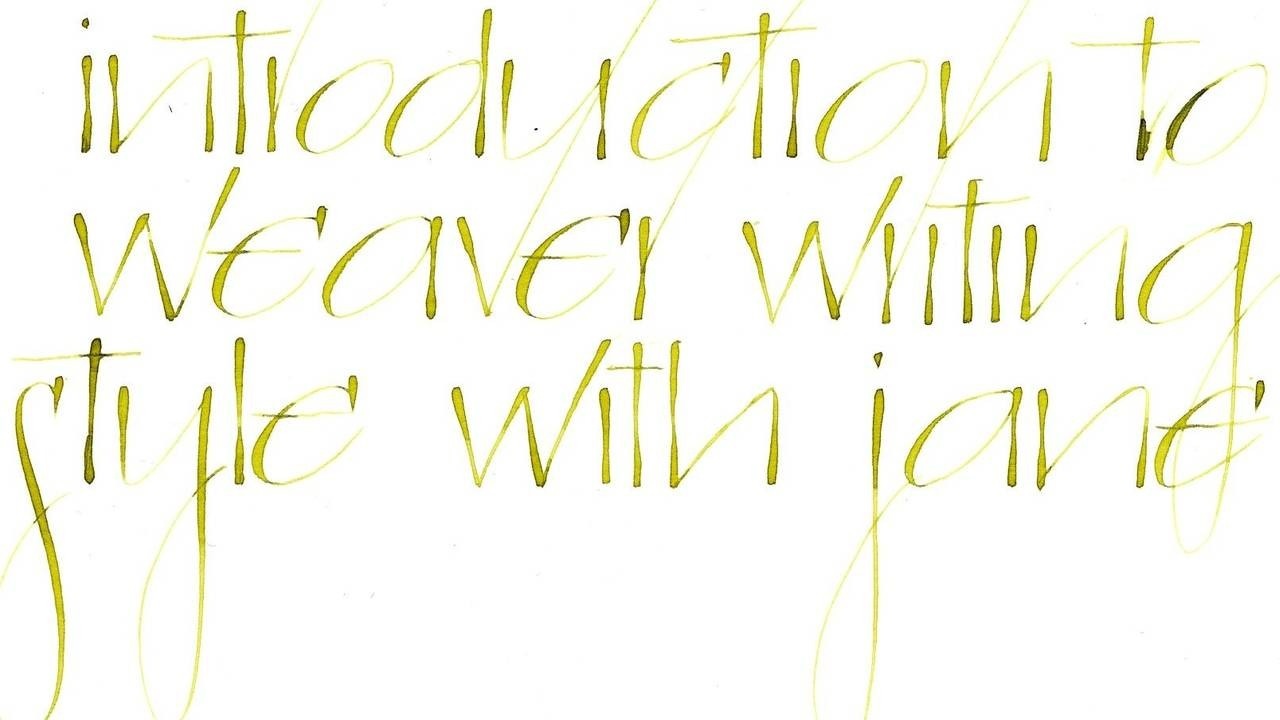
Advance your script repertoire with this whimsical unicase script. Weaver Writing contains only 26 letterforms! Rather than having minuscule and majuscule letters, it has one style of letter with a variable mix of classic "upper" and "lower" case.
This class builds on concepts taught in the Intro to Pointed Pen Uncial class, so we recommend taking that class first. It is found in our Class Archive, and Tier 2 members can access the class here.
Topics Covered:
How to Write in Weaver Writing Style
Want to join us for class? It's offered on-demand and available now for all Tier 2 students. Some classes are also available to Tier 1 students. Click here to see the Tier 1 Class Listing.
How to Access Your Members-Only Class:
- Go to www.kallicampacademy.com
- Log in to your account
- Click on Classroom
- Click on Tier 2 -- Class Archive
- Click on Different Calligraphy Scripts
Supplies:
- Weaver Writing Guide Sheet from the handout printed on paper such as Gilbert Bond Pract ...
Ink and Wash Part II

Welcome to Part II of the Ink and Wash Technique series. Ink and Wash (aka line and wash) is a fun way to quickly sketch a landscape scene or a street scene, or in this case, food. It can be as detailed or as loose as you want it to be. It can be just a few quick squiggles or lines to give the suggestion of a person, place, or thing. The idea is get something down on paper quickly and have it look effortless, opposed to labored. The wash part of the technique requires more water in the paint mix and then a series of drying and then laying down more wash to create a layered look to go from light to dark.
Topics Covered
- What can you do to make sure something looks like what it should look like
- Sketching and painting tomatoes
Want to join us for class? It's offered on-demand and available now for all Tier 2 students. Some classes are also available to Tier 1 students. Click here to see the Tier 1 Class Listing.
How to Access Your Members-Only Class:
- Go to www.kallicampacad...
Ink and Wash

Ink and Wash (aka line and wash) is a fun way to quickly sketch a landscape scene or a street scene, or in this case, food. It can be as detailed or as loose as you want it to be. It can be just a few quick squiggles or lines to give the suggestion of a person, place, or thing. The idea is get something down on paper quickly and have it look effortless, opposed to labored. The wash part of the technique requires more water in the paint mix and then a series of drying and then laying down more wash to create a layered look to go from light to dark.
Topics Covered
- How and where to get started when using a large plate of food as your painting inspiration
- Painting the carrots first and then inking them up
- Sketching the carrots first and then adding color
Want to join us for class? It's offered on-demand and available now for all Tier 2 students. Some classes are also available to Tier 1 students. Click here to see the Tier 1 Class Listing.
How to Access Your Members-Only Clas...
Watercolor Leaves and Florals Pop-up Card
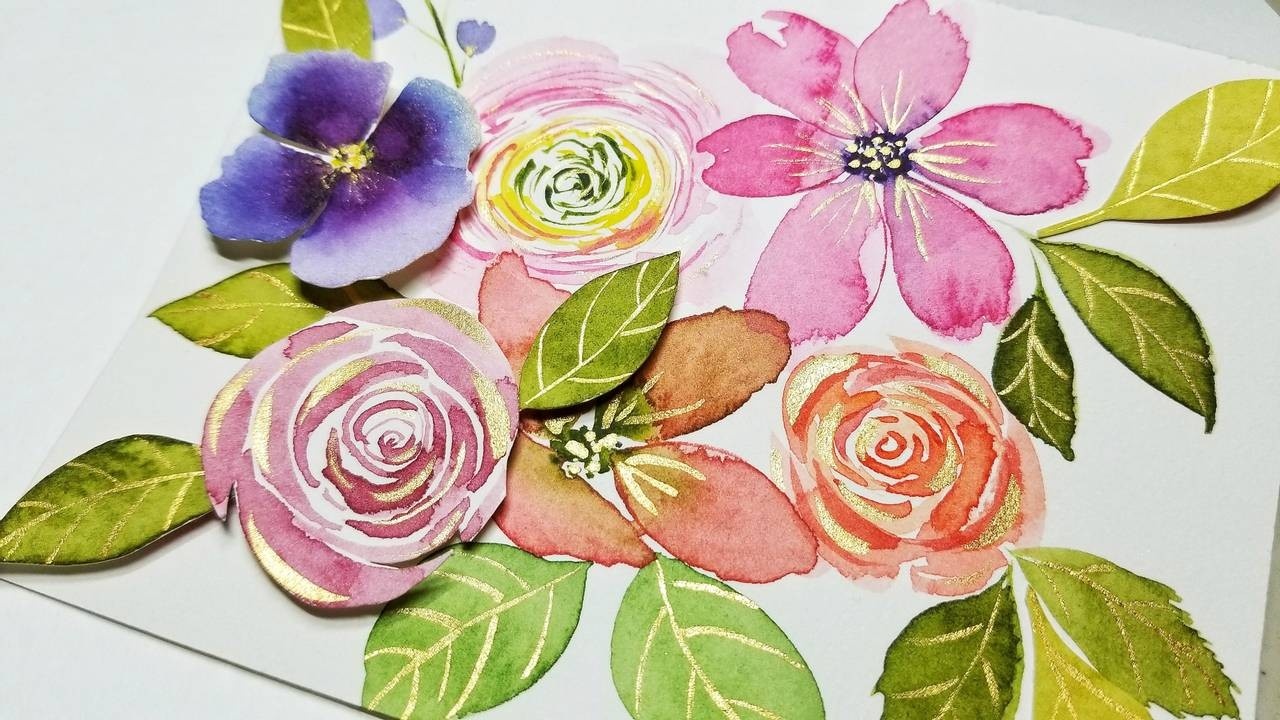
Make a splash of brightly colored leaves and florals to bring a little happy to your work space or send to someone else. We will start with a step-by-step process of creating each of these different designs with watercolors. You’ll learn some special techniques for painting florals, how to give them an extra sparkle with gold paint, and how to get a layered pop-up effect for a 3-D card that will wow the recipient.
Want to join us for class? It's offered on-demand and available now for all Tier 2 students. Some classes are also available to Tier 1 students. Click here to see the Tier 1 Class Listing.
How to Access Your Members-Only Class:
- Go to www.kallicampacademy.com
- Log in to your account
- Click on Classroom
- Click on Tier 2 -- Class Archive
- Click on Watercolor and Painting
Materials Needed
EK Success Cutter Bee Precision Scissors
Watercolor Charging and Glazing Techniques
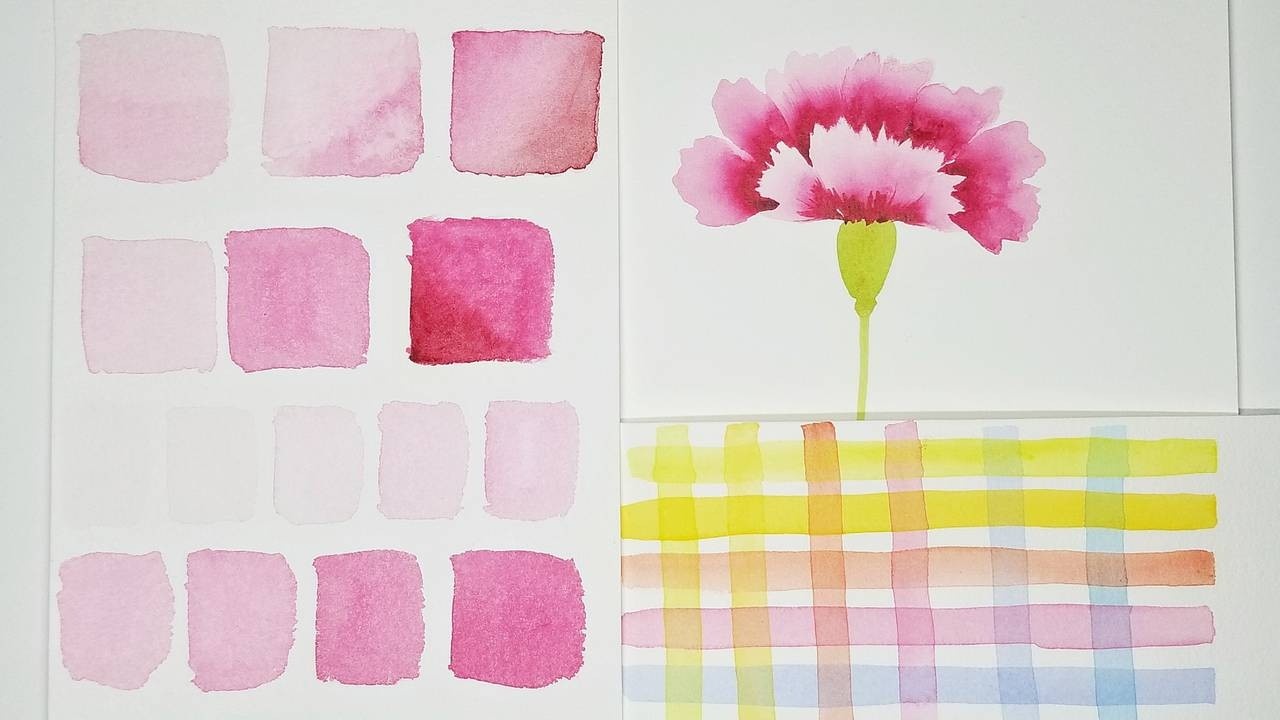
Charging and glazing are two watercolor techniques used for mixing, blending (unifying), diffusing, lightening, adding value, and even making subtle color changes (balancing, adjusting, fixing, etc.)
Have you tried these techniques but ended up with something muddy or dull or opaque? I have a few simple exercises to share that will help you understand the ins and outs of these two techniques and how to apply them to your paintings.
Want to join us for class? It's offered on-demand and available now for all Tier 2 students. Some classes are also available to Tier 1 students. Click here to see the Tier 1 Class Listing.
How to Access Your Members-Only Class:
- Go to www.kallicampacademy.com
- Log in to your account
- Click on Classroom
- Click on Tier 2 -- Class Archive
- Click on Watercolor and Painting
Supplies:
Round paintbrush (anything that is not thirsty - avoid Neptunes)
Flat / One stroke brush (1/2" - 1")
Transparent watercolors (Any paint that does not ...


